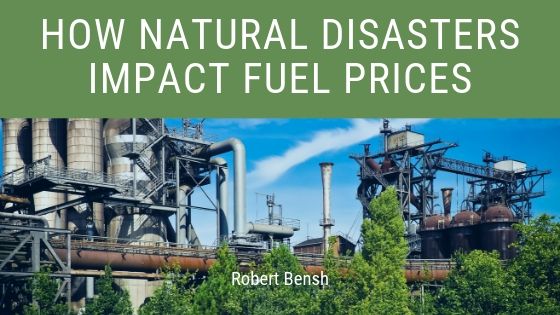Natural disasters do more than destroy property: they cause an increase in the price of fuel. Most price increases occur during or after natural disasters for three primary reasons.
Product Shipping
One of the principled rules of economics revolves around the concept of supply and demand. If there exists a low supply of goods, but a high demand, the product price will be of a higher value.
With natural disasters, the physical infrastructure of the impacted area will most likely be damaged. As a direct consequence, this problem makes it harder for fueling companies to ship their product to the area.
Inevitably, the above scenario will mean that less fuel is available. This problem creates an inflationary effect where companies will temporarily scale their prices in order to meet demand, as well as compensate for any shortages in supply.
Manufacturing
The refining of the fuel product is important. With the damage to the infrastructure, refineries could be shut down. If the refineries are not in operation, a barrier is created regarding the production of the fuel. If no new fuel is being created, then this problem limits the supply by necessity.
This problem, along with shipping, forces an artificial increase on the pricing of fuel; this is since new product isn’t available to come in to meet demand. Larger companies may have more flexibility, given their vast resources, but smaller chains that rely on the local refineries do not have that luxury.
Profit
Many budding entrepreneurs see an opportunity to make profit when dangerous conditions arise. Prior to the impending natural disaster, these same merchants may purchase their fuel supply in bulk.
There is a logical reason behind this action. When the calamitous weather event hits, these merchants will have the necessary supply to meet the demand for the fuel. If the competitors in the area are raising prices, they can afford to do so as well, while maintaining the resource advantage. This scenario gives them the potential to make profit.
Summary
The factor causing the increase in fuel price revolves around the concept of supply and demand. Even though a natural disaster can cause speculation on the market, while damaging both manufacturing and product shipping, pricing does eventually go back down over time. Inflation is not permanent, despite the scary climate a natural disaster can create.
